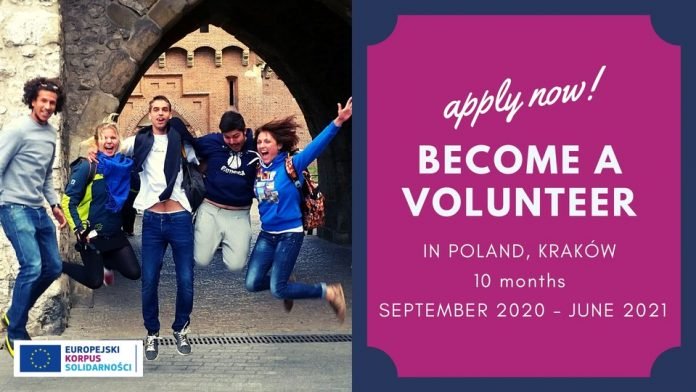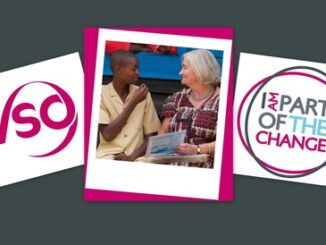JOIN OUR WHATSAPP GROUP. CLICK HERE
acancy no.: DC/PRRETORIA/2020/NO/04
Publication date: 27 April 2020
Application deadline ( midnight local time): 15 May 2020
Job ID: 2570
Department: RO-Africa
Organization Unit: DWT/CO-Pretoria
Location: Pretoria
Contract type: Fixed Term
Contract duration: 12 months
Under article
- 2, paragraph (e) of the Staff Regulations, the filling of vacancies in technical cooperation projects does not fall under Annex I of the Staff Regulations and is made by direct selection by the Director-General.
In order to support the best informed process in the filling of the above-mentioned vacancy by direct selection, the ILO invites interested candidates to submit their application online by the above date.
The following are eligible to apply:
- ILO Internal candidates in accordance with paragraphs 31 and 32 of Annex I of the Staff Regulations.
- External candidates*
*The recruitment process for National Officer positions is subject to specific local recruitment and eligibility criteria. ONLY SOUTH AFRICAN CITIZENS ARE ELIGIBLE TO APPLY.
Technical cooperation appointments are not expected to lead to a career in the ILO and they do not carry any expectation of renewal or conversion to any other type of appointment in the Organization. A one-year fixed-term contract will be given, with a possibility of extension. Extensions of technical cooperation contracts are subject to various elements including the following: availability of funds, continuing need of the functions and satisfactory conduct and performance.
- Conditions of employment for external candidates: In conformity with existing ILO practice, the appointment of an external candidate will normally be made at the first step of this grade. The entry level salary for this position is NOB Step 1 of the UN salary scale.
Introduction
South Africa has high levels of poverty and inequality, and social protection programmes are characterised by exclusions of specific categories of individuals. The exclusion takes the following form: exclusion from existing programmes due to policy gaps resulting in the non-provision of targeted social protection to specific groups of individuals, targeting inefficiencies, poor penetration of rural and hard-to-reach areas, and barriers of access to the benefits. Addressing these gaps in the provision of social protection is an official government policy position as provided in the National Development Plan 2030 (Chapter 11 on social protection); the government’s Medium-Term Strategic Framework (MTSF), and the United Nations Strategic Cooperation Framework (UNSCF 2014-2020). Specifically, Outcome 3 of the UNSCF ‘Human Capabilities’ and its Key Result Area 3: ‘Increased access by vulnerable populations to Social Protection Services’. In the UNSCF, the UN commits to support governments’ efforts in the establishment of a ‘Social Floor’ for all vulnerable groups. This support includes the establishment of a Joint Programme (JP) as a direct contribution to Outcome 3 and Key Result Area 3 stated above.
The Joint Programme seeks to address exclusion from existing provisions of social protection programmes and advocates for a comprehensive and inclusive system that leaves no one behind. The JP believes the remedy involves a combination of dynamic and sustained economic growth strategies and well-designed set of policy interventions to improve the social protection system, which not only acts as an economic stabiliser but also has positive impacts on economic growth.
The JP aims to:
(i) develop feasible options to cover the most glaring social protection gap (the provision of income security for those between the ages of 18 and 59 years) and support the process of building consensus on a nationally defined Social Protection Floor (NSPF);
(ii) establish social insurance schemes for women in the informal sector, particularly in rural areas;
(iii) support the development and financing of a new strengthened welfare services delivery model and its linkages social grants; and
(iv) establish a Joint Programme Management structure to oversee and monitor the implementation of the Joint Programme (JP) and present regular progress and monitoring reports.
The expected results include unpacking of a social protection floor, its measurement and costing, and building consensus on a NSPF.
The ILO is the lead implementing institution of the Joint Programme in close collaboration with Participating United Nations Organization (PUNO): UNICEF, UNWOMEN, UNDP and OHCHR. The JP partners includes national and provincial authorities, civil society organizations, Social Partners, Research institutions.
The ILO Decent Work Team (DWT)/Country Office (CO) Pretoria is recruiting a motivated and committed professional to serve as National Project Coordinator (NPC) on Social Protection for implementation of the Joint Programme. The National Project Coordinator will be based in Pretoria, South Africa.
Reporting lines
The National Project Coordinator (NPC) on Social Protection will report to the Director, ILO DWT for Eastern and Southern Africa and Country Office for South Africa, Botswana, Lesotho and Eswatini, and work under the technical supervision of the Senior Social Protection Specialist (based in DWT/CO Pretoria, South Africa). The NPC on Social Protection will receive technical advice and support from the Social Protection Department (SOCPRO) in HQ, Geneva.
Description of Duties
- Ensure effective coordination of planning, implementation and monitoring of all JP activities, in conformity with ILO policies, programming guidelines, country/action programs, and administrative and financial procedures;
- Ensure effective implementation of the programme through timely provision of technical inputs, effective backstopping, timely and efficient delivery of outputs, and monitoring of activities;
- Liaise with relevant ILO Units, departments at PUNOs, government offices, ILO constituents and programmes to ensure the smooth implementation of activities;
- Provide oversight of programme resources and make recommendations to management as necessary;
- Prepare briefs, periodic and ad hoc reports on the status of programme implementation;
- Plan and facilitate research activities and studies within the scope of the programme – develop concept notes, provide technical inputs, review, verify, analyse and provide feedback on reports and other information;
- Organize and support the delivery of seminars, workshops, training sessions and meetings in line with programme activities.
- Develop project information materials and knowledge products.
- Liaise with JP PUNOs and partners for effective dissemination of programme results and enhanced programme visibility.
- Perform other relevant duties as may be assigned by the Office Director.
optional section (if needed)
Required qualifications
Education
First level University degree (Bachelor’s or equivalent) in economics, social protection, social sciences or related field. A strong quantitative/empirical background would be desirable.
Experience
At least three years of experience in project management and implementation.
Experience in the area of social protection and inclusion is strongly desirable. Understanding of the ILO, the United Nations system, working with officials of government ministries, employers’ and workers’ organizations would be an advantage .
Languages
Excellent command of English and good knowledge of an official language of the duty station.
Competencies
- Substantive knowledge of issues of poverty, inequality, vulnerability, social protection and inclusion, and strategies for the extension of social protection to all.
- Strong knowledge of trends/landscape of social protection in South Africa, and regional and global developments in social protection.
- Excellent analytical skills. Ability to contribute to research and policy oriented activities and reports.
- Good quantitative skills – ability to relate to models/tools for costing, impact assessments, etc.
- Excellent drafting skills and the ability to communicate effectively both orally and in writing in English.
- Ability to establish and maintain systems for effective programme implementation, reporting and evaluation. Demonstrated ability to effectively implement a Development Cooperation programme.
- Good knowledge of the role and operations of UN system activities for development.
- Ability to understand and effectively work with Government, workers and employers organizations, non-government organizations and UN agencies.
- Proficient in basic computer software (Microsoft Word, PowerPoint, Excel, Adobe Reader) and ability to use other software packages required by the Office.
- Good planning and organizational skills. Ability to work on own initiative, with minimum supervision, as well as a team member and team leader. Good interpersonal relations.
Recruitment process
Please note that all candidates must complete an on-line application form. To apply, please visit the ILO Jobs website. The system provides instructions for online application procedures.
Fraud warning
The ILO does not charge any fee at any stage of the recruitment process whether at the application, interview, processing or training stage. Messages originating from a non ILO e-mail account – @ilo.org – should be disregarded. In addition, the ILO does not require or need to know any information relating to the bank account details of applicants.
JOIN OUR TELEGRAM CHANNEL. CLICK HERE




Be the first to comment